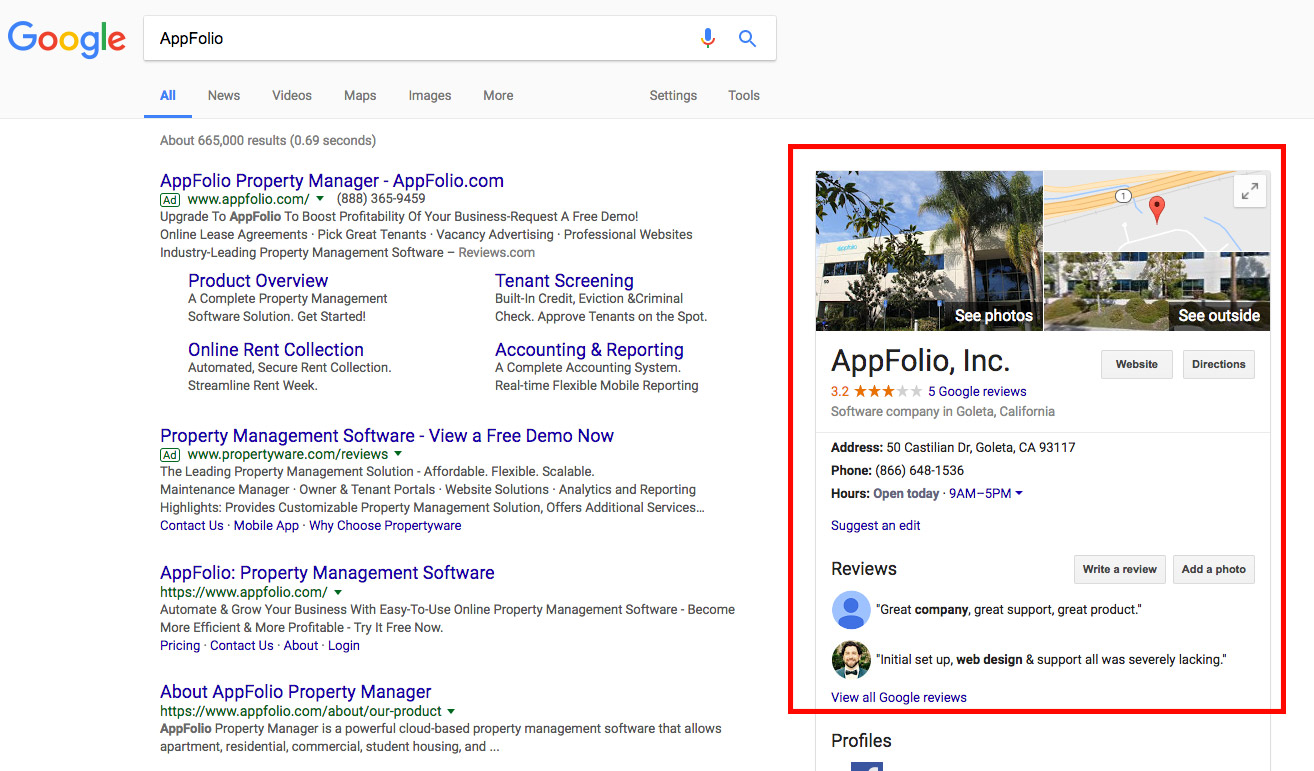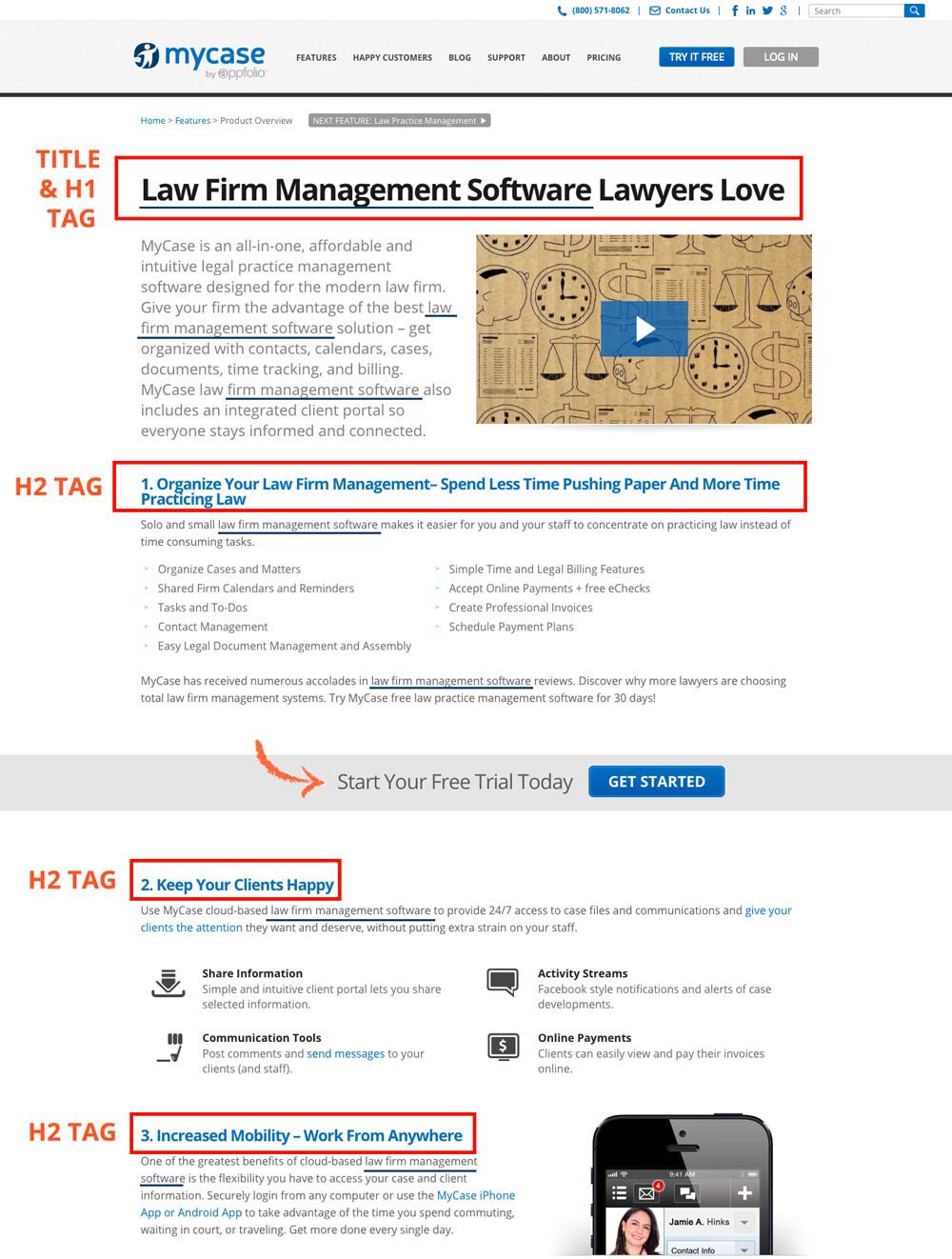How Digital Analytics Can Ignite Your Law Practice
This blog post was written by Andrea Liedloff, a Senior Customer Success Manager at MyCase. When not servicing MyCase customers and palling around with her coworkers, Andrea enjoys reading Harry Potter, practicing Krav Maga, and the occasional spontaneous dance party.

So… you started your law firm.
Maybe you’ve just graduated law school or made that leap of faith by leaving Biglaw to finally be your own boss. You’re ready to hang your shingle and you’ve got new business cards, but instead of dozens of new clients knocking down your door, your business growth is slower than, ahem… expected.
Starting any business always involves hurdles you’ll need to overcome, but marketing — especially in the digital age — is one of the most important and challenging areas of running a law firm. So as an attorney, what can you do? You’re itching for new clients and referrals, but how do you get them? Even more daunting: how can you get potential clients to retain your firm if they don’t even know it exists?
That’s what we’ll dive into today — how to effectively market your firm to get clients (and keep them) with some digital analytics tips for lawyers! We’ll look at the importance of having a strong online presence with a modern website, setting up the basics like a Google Business Listing, and how to leverage tools like Google Analytics to improve your SEO (Search Engine Optimization).
Start with the basics: Set up your law firm’s Google Business Listing
While prioritizing Google Analytics and SEO is a good thing (and we’ll get to that next), don’t neglect simple marketing strategies like ensuring your Google Business Listing is up to date and informative. What is a Google Business Listing exactly? It’s the area that shows up on the right side any time you search a business in Google, as you can see below in Google’s Search Engine Results Page (SERP):
The business listing is the rich snippet of text that shows reviews of your business, photos, location data, website, hours of operation, etc. It also makes your law firm appear when people are searching in Google Maps and is an excellent way to compete with the advertisements from your competition if they’re targeting your business name as a keyword or are in the same city and practice area as you.
Google Business Listing is an easy, free way to give your law firm more exposure when people are searching for your or your law firm online. What are you waiting for? Get your law firm’s Google Business page set up today!
Why Search Engine Optimization (SEO) matters to lawyers
Like two lovers strolling down a beach, Google Analytics (GA) and Search Engine Optimization (SEO) go hand-in-hand. The data gleaned from search engines results and GA can help inform the types of terms and metatags you should add to your website. It also helps you make intelligent decisions on who to market to, and can guide you when updates to your website content are needed to help improve your position in search results. Google Analytics analyzes what visitors click on and navigate to on your site and SEO ensures that people online find your law firm website to begin with — and then stay there!
Amanda Grant discusses SEO best practices in this article, sharing that the top steps to take to ensure strong SEO are to populate each web page with appropriate title tags, meta descriptions, content with embedded keywords, heading tags, and image text. Put more simply, these are the keywords that show up in the tabs at the top of your web browser, the words that pop up when you hover over an image, or the description that shows below your website in a Google search.
Even though a lot of this information isn’t seen by your law firm’s website visitors, it’s important because it gives your website and business “SEO juice” which will help your site move up in search engine results over time.
For example, let’s take a look at a web page on MyCase.com. The screenshot below shows the actual page and where some of these key SEO steps to take appear, like utilizing Title, H1, H2 and Meta Tags. Also, look at the underlined words (law firm management software) throughout the page — that is the keyword for this page, which is why it appears so many times.
This image below shows how your webpage’s Title Tag and Meta Tag Description appear in the Search Engine Results Page and why it is important to think about the terms you use for these tags (remember the keyword “law firm management software” that appeared on the page above so many times? That phrase is also the “Title Tag”):
Why choose Google Analytics to analyze your law firm website traffic?
SEO. Digital Analytics. Conversion Rate. Organic vs. Direct. What do all these fancy tech terms mean, you may ask? You graduated from law school – you’re not a 20-something digital marketing “ninja” (or maybe you’re both, in which case, you’re amazing!).
But chances are you are a solo or small firm attorney just looking to grow your business and get new clients, and the thought of using your law firm website to accomplish that probably seems a little daunting — if not impossible! But the reality is, like most things in life, once you start to see the value you’ll just ask yourself: Why haven’t I been doing this all along?
As Hrvoje Krpan says in his article “10 Reasons Why You Should Choose Google Analytics as Your Website Analytics Software”:
Digital Analytics is a set of measurements that help you understand your website performance. As a business owner or a marketer you want to see what visitors are doing on your site, how they interact with it, and how to help them accomplish their tasks. With this information you will be able to increase your sales and maximize your marketing efforts by focusing on the most profitable marketing channels.
Out of all the digital analytics tools out there, why choose Google Analytics? Put simply, it is the easiest to use, it gives you a robust amount of the data you need, and it’s free! For a simple overview on how to “read” the Google Analytics data, see the ABCs below:
Google Analytics ABCs
- Acquisition: How do you acquire users to your law firm’s site? Did they use a search engine like Google or Bing (organic), click on an ad (paid) or type your URL in directly into the browser (direct) after looking at your business card for example? How many unique visitors and from what part of the country? Did they find your law firm and visit your site because they found you on another site like Avvo (referral)?
- Behavior: How do users behave on your website once they get there? Do they only spend a few seconds and then leave (that’s called a “bounce”) or do most visitors find your site from a popular blog post or page, and then explore more on their own? What links or images do they click on? How much time do they spend there?
- Conversion: The big digital marketing “C” word — conversion. This could be the most important metric you need to know. Do your users take a desired action on your site that will help you get more business? Do they reach out to you either by clicking on your phone number or filling out a contact form? Did you run an online marketing campaign (like a Facebook Ad) or send a client newsletter offering a free consultation and get them to sign up?
Using Google Analytics to grow your business starts with having the correct tracking and goals set up ahead of time. Once you have a solid, modern website that users can access from any device (this is called a “responsive website”) and the Google Analytics tracking code installed, you’ll can use the GA ABC’s to monitor and gain insight into data that will help you make better decisions to help you grow your business.
The final verdict: What’s a solo to do?
Now you may be asking yourself: How can I get this process started? Where do I even begin?
Sure you can try to go it alone — but hopefully you’re busy practicing law, so working on your digital marketing skills might not be the best use of your time. You could also hire a freelance web designer who may (or may not) know what they’re doing, and who may (or may not) charge you a reasonable rate.
For MyCase customers, the MyCase websites team can help you set up Google Analytics and get up and running with SEO best practices on your site for free! Not only that, they can create an amazing website for you from one of our custom templates – AND at an affordable price!
Meet with one of our Web Specialists today by contacting [email protected] — we’ll help you get your analytics up and working and provide some useful direction for your blog. Not a MyCase customer or simply don’t have a website yet? Contact us for a one-on-one demo to hear about the no-hassle process and you’ll have a new, SEO-optimized law firm website within a few weeks!
BONUS! Since you made it all the way down here to the end of the post, I can tell this whole SEO/Digital Analytics thing has piqued your interest, so I wanted to share one more tool that Google came out recently called Google Primer (available for Android and iOS devices).
Primer is a fast, easy way to learn new business and digital marketing skills. It gives you bite-sized lessons to do whenever you have in 5 minutes for free. Interactive activities will help you learn concepts quickly. And you can put your new knowledge to use right away with personalized, in-app next steps that are automatically saved for you. Check it out!







